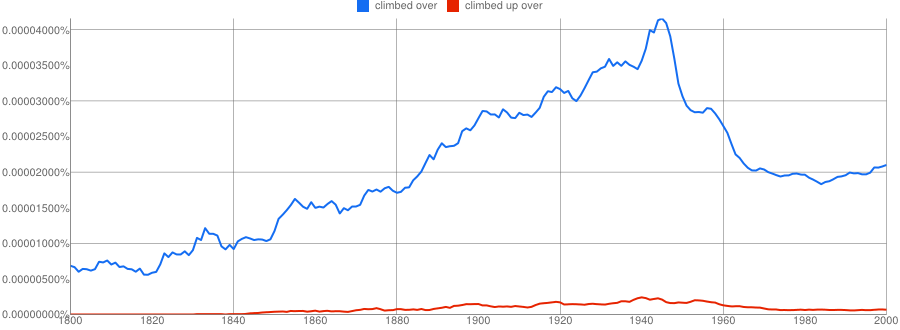I found that climbed up over is used in the following sentence of the 'excerpt' “The Amber Spyglass” in The New York Times.
“Ama and her daemon climbed up over the rock shelves and around the little cataracts, past the whirlpools and through the spectrum-tinted spray, until her hair and her eyelids and his squirrel fur were beaded all over with a million tiny pearls of moisture.”
As climbed up over does not have many hits in Google nGRAM, I am wondering, why should we prefer climbed over? To be clear, what is the grammatical rule that we should consider to choice between climbed up over and climbed over?
See the following nGRAM:

